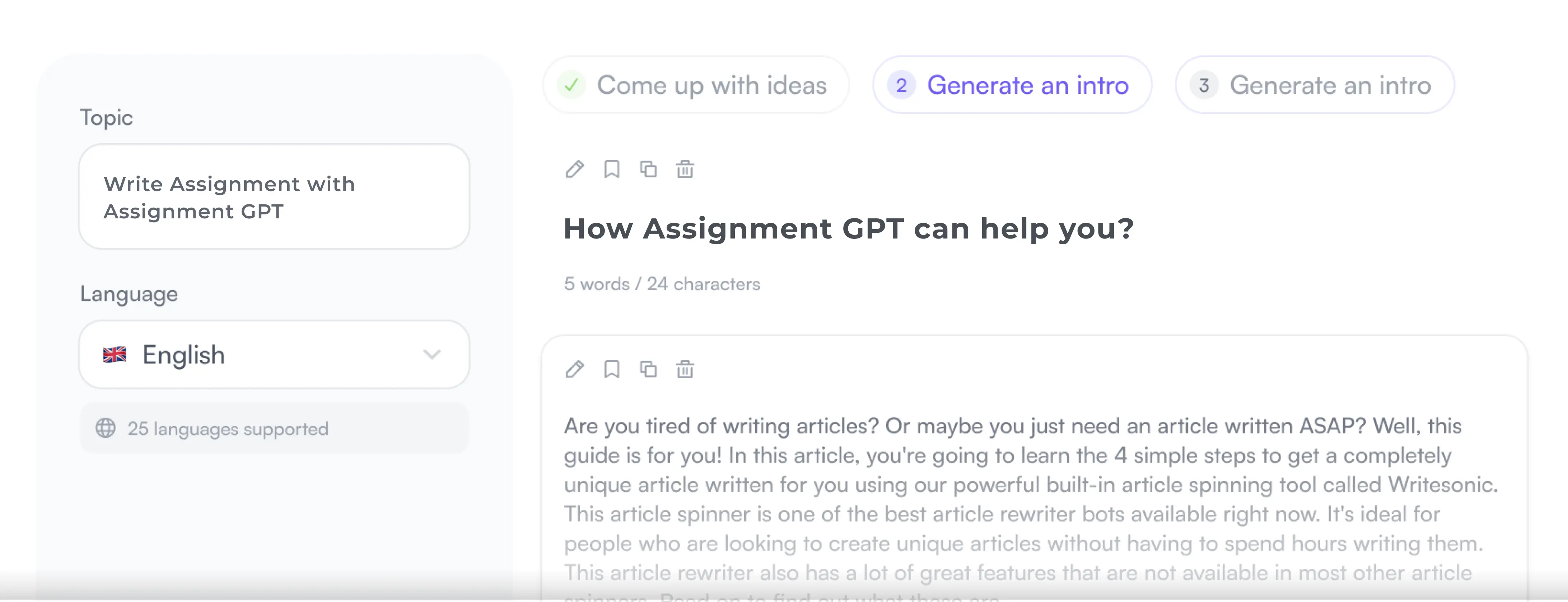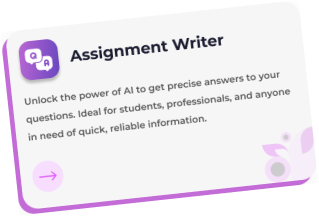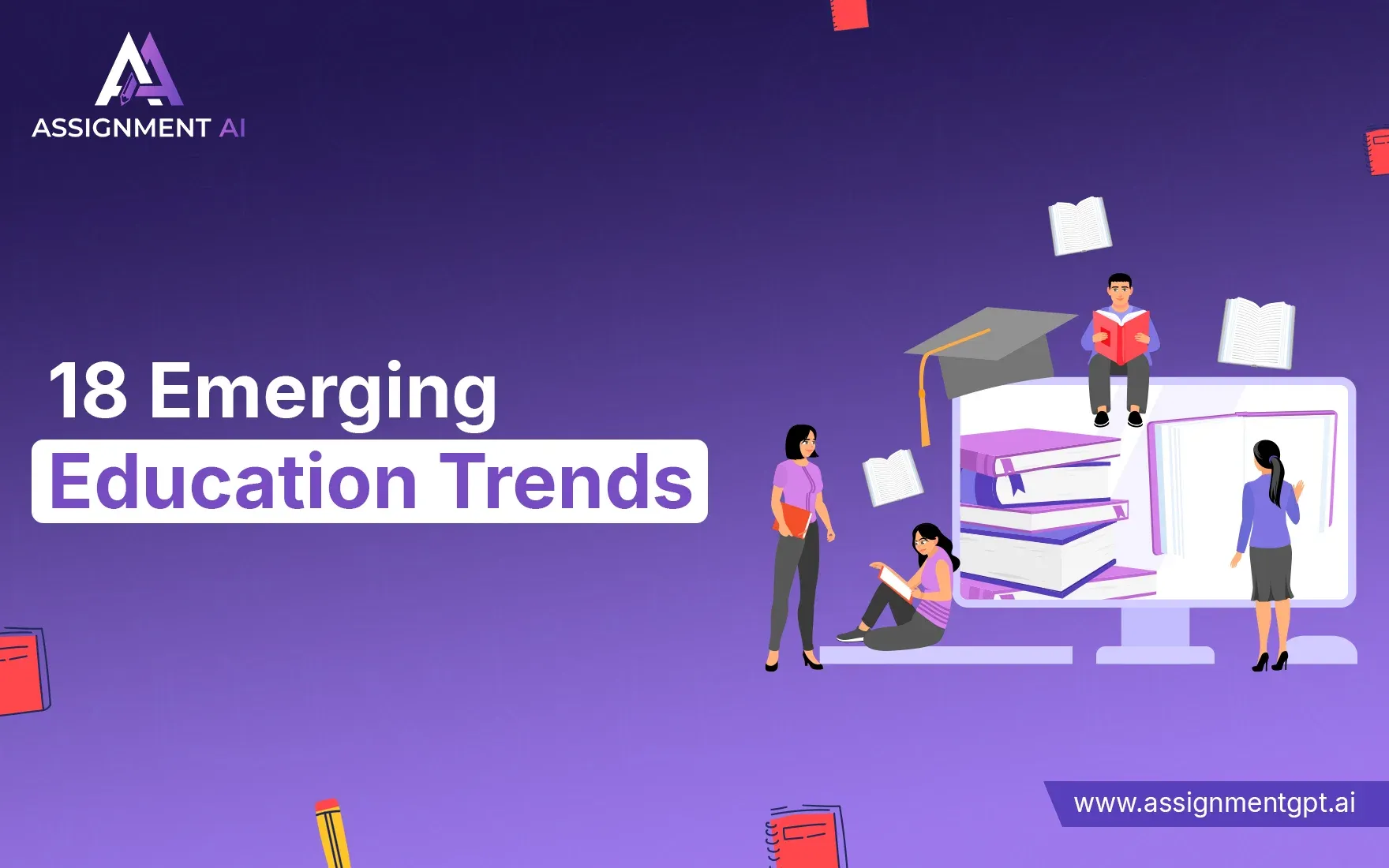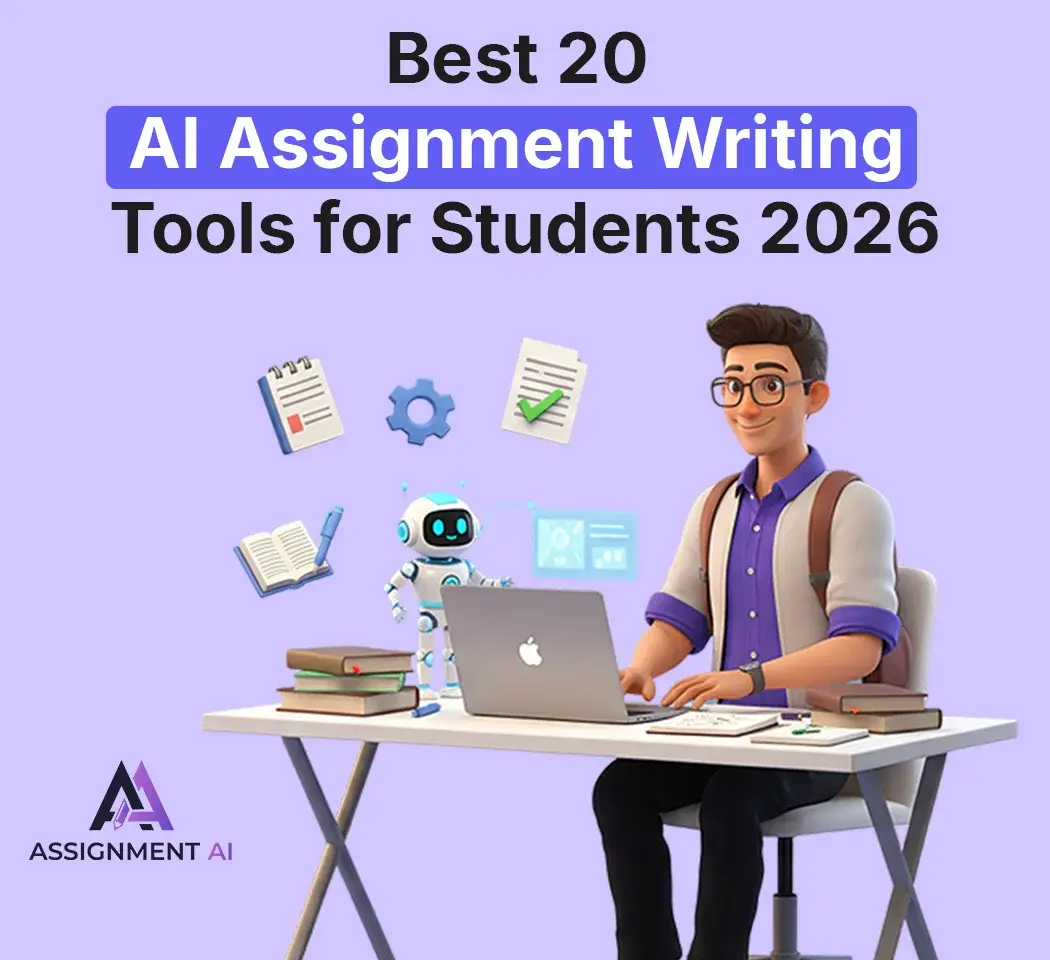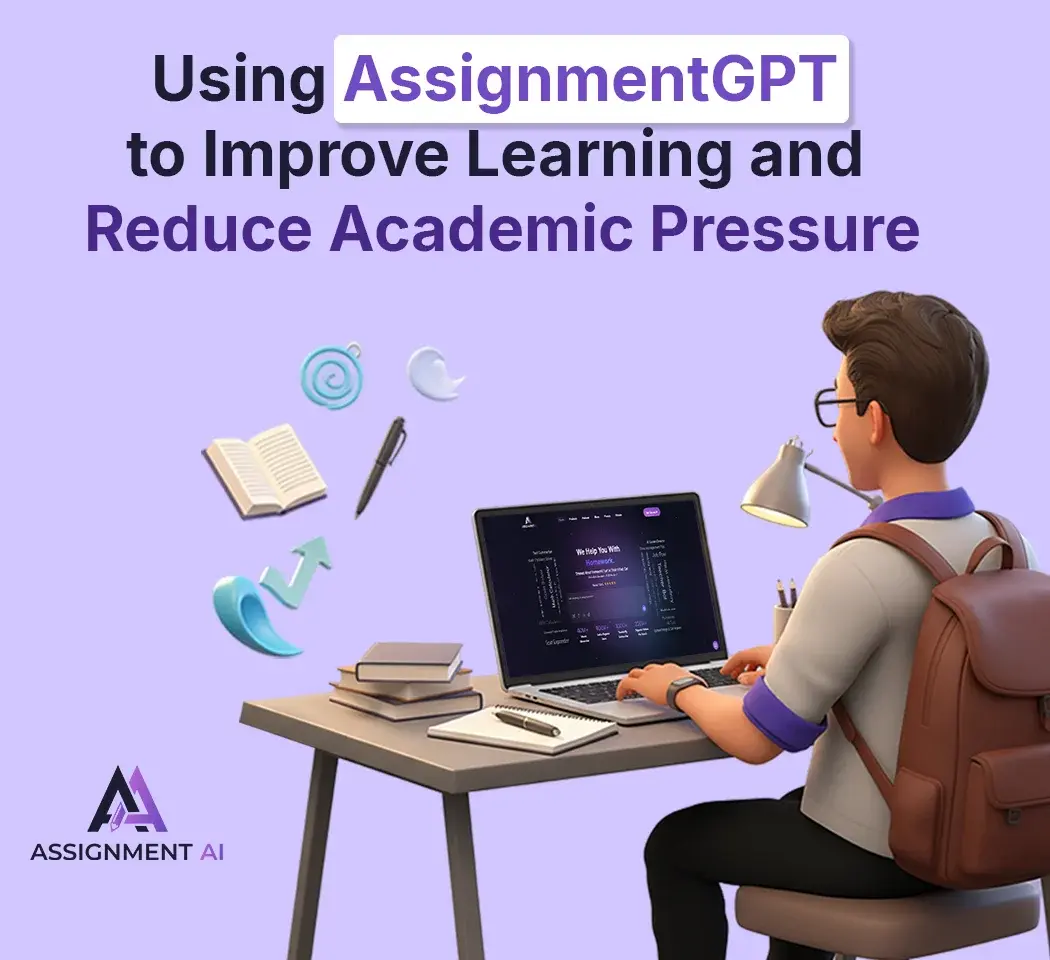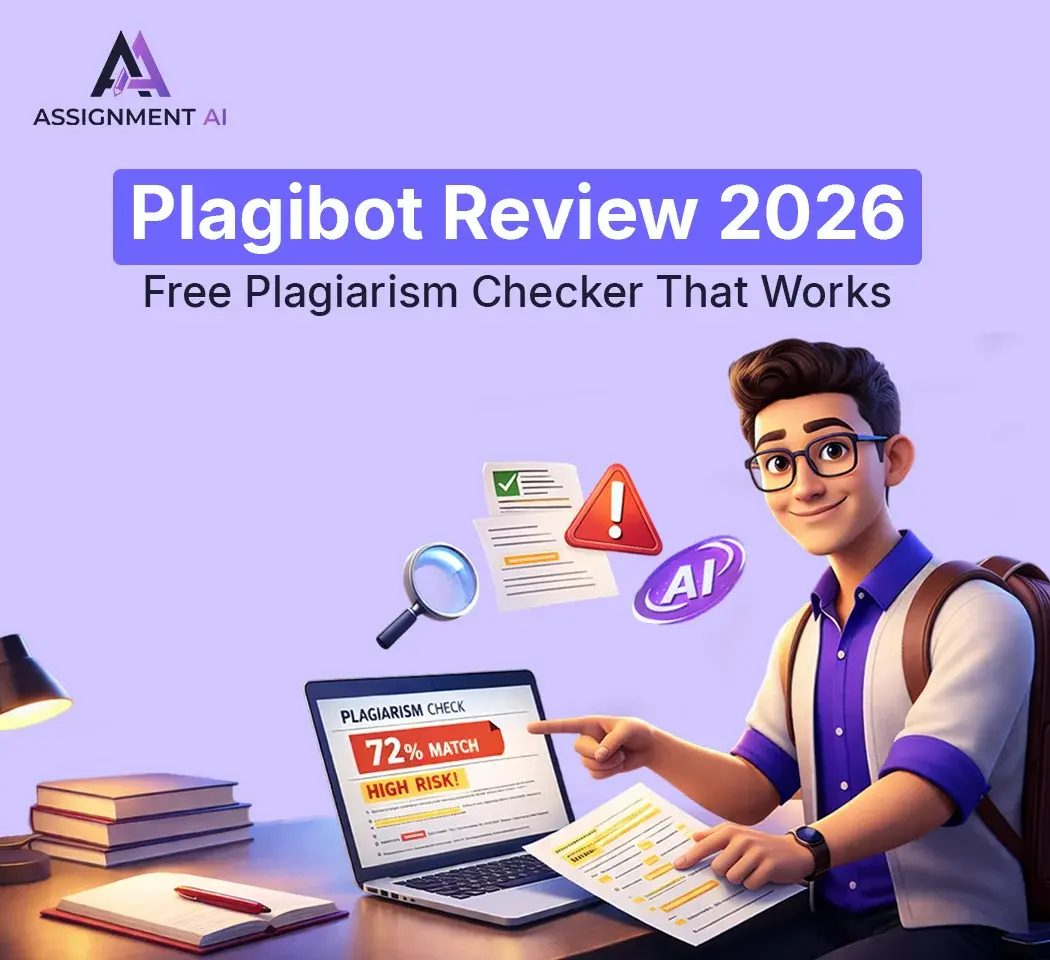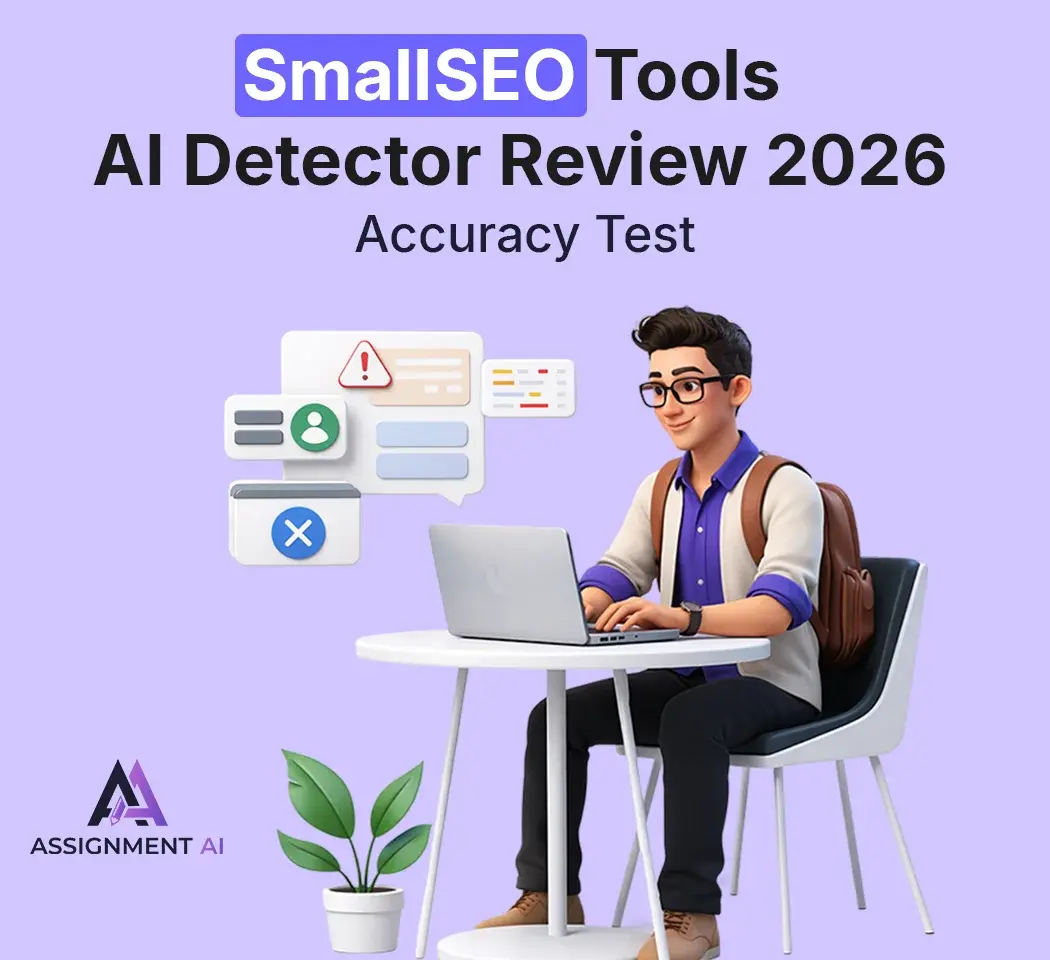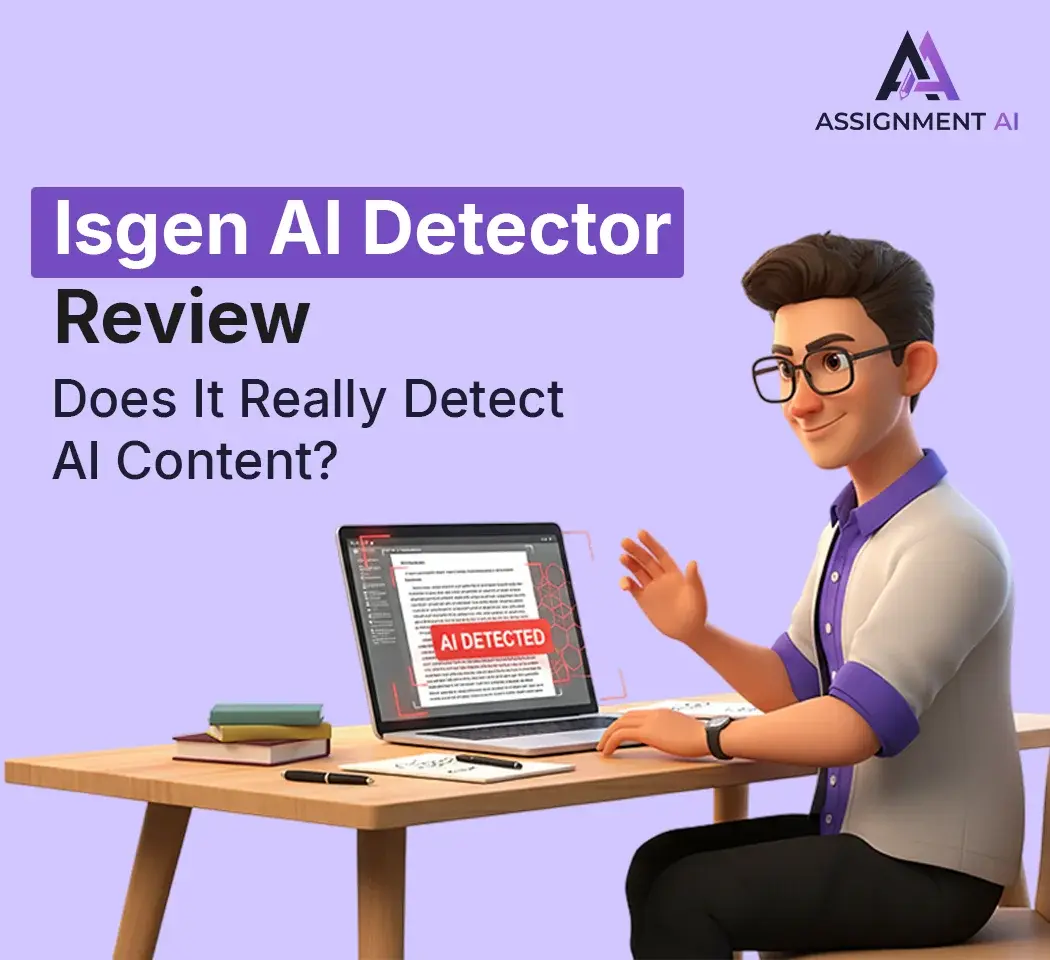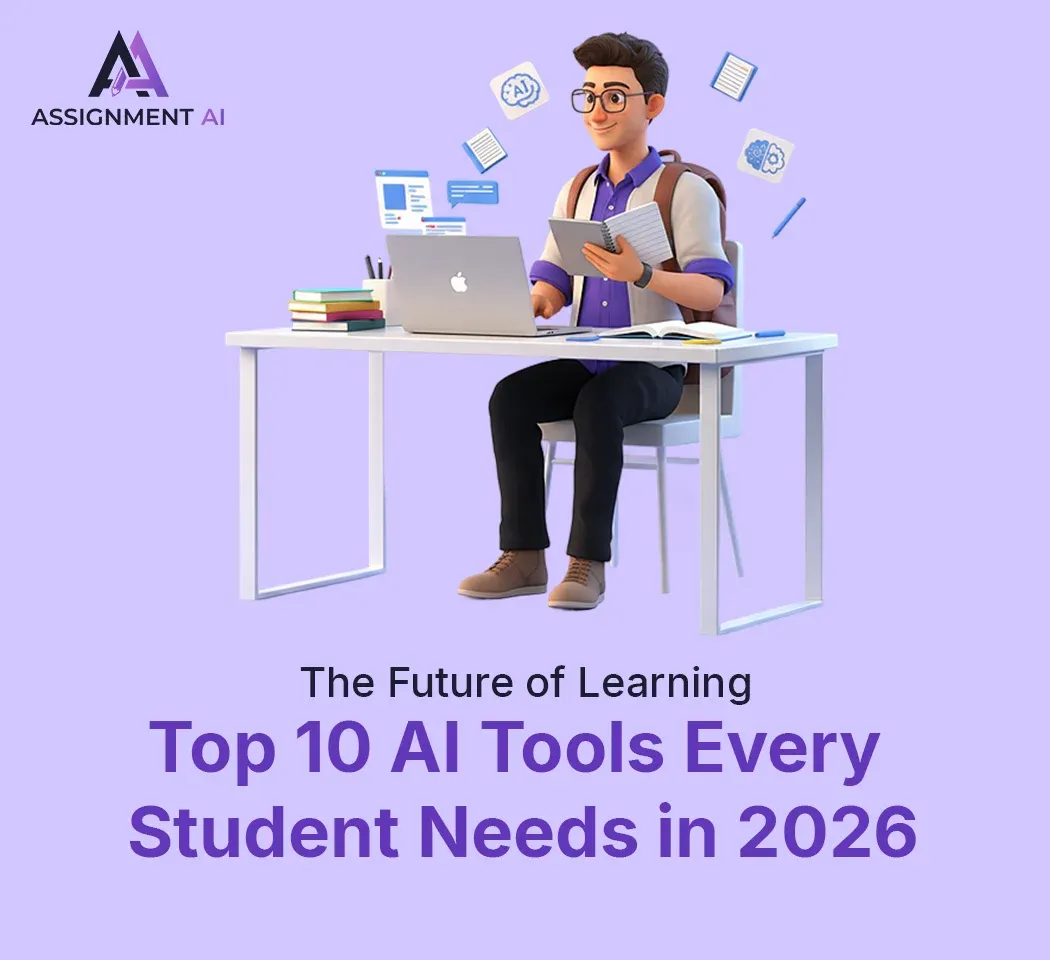AssignmentGPT Blogs
Now, Education is changing rapidly. Our classrooms of 2025 and 2026 will give you a classroom of the last ten years. Development across the education space, AI tutors, micro-learning platforms, etc.
I have deeply focused about educational and academic sector. So, whether you’re a student, a teacher, or belong to the educational sector.
In this blog, I’ll discuss 18 emerging tools that are satisfying educational tools and learning methods that evolved a lot, like Google search engines and Google Scholar have evolved a lot due to AI tools.
Emerging Education Trends
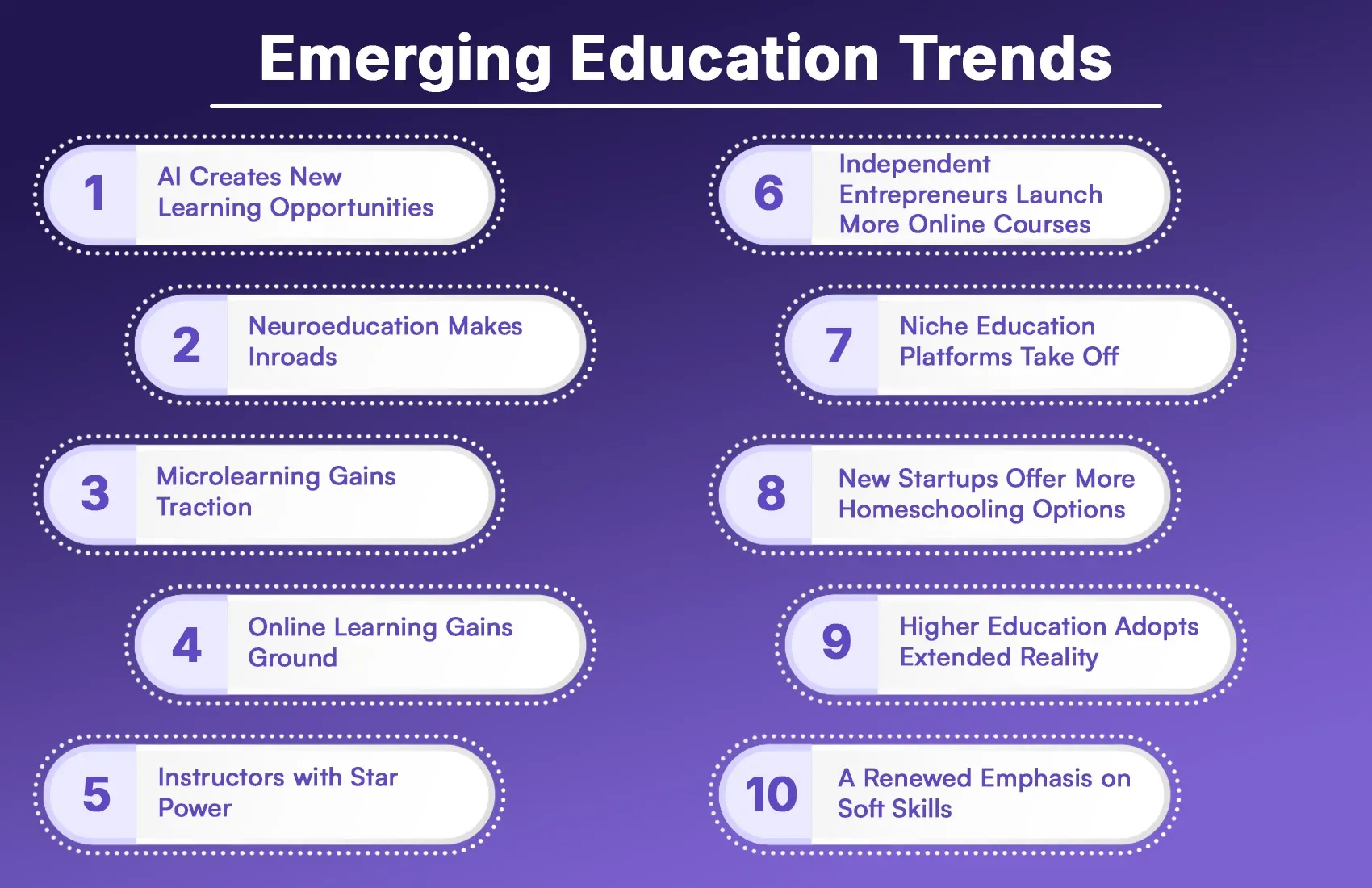
1. AI Creates New Learning Experience
Artificial Intelligence is not just a trendy word anymore, it is the foundation of today's education systems. AI has transformed the way students interact with course materials, from grading their work, to personalizing study plans.
One example is AssignmentGPT AI. This is not just a simple homework helper; it is a learning friend - helping students learn why something is correct - rather than just regurgitating the answer. I have also used such A.I. platforms, the interactivity and depth of feedback are mind-blowing.
AI tools now also analyze a student's performance, learning habits, and even their attention span in order to optimize their study patterns and give them the ability to finally learn their way, and at their pace!
To be blunt, AI is not replacing teachers or tutors. AI is supporting the best practices of educators: Personalizing learning, optimizing engagement and impact, and documenting understanding and progress in new and fun ways.
2. Neuroeducation Makes Progress
Neuroeducation is the intersection of neuroscience and education. Its main focus is to understand how the brain learns and retains information.
In 2026 and beyond, I predict that we will see schools and universities implement brain-based learning strategies to increase attention, memory, and creativity in students. For instance, lessons planned specifically around the fact that neural pathways strengthen with repetition or lessons based on story-telling approaches have been shown to enhance comprehension.
Educators are beginning to utilize brain imaging studies to shape lesson plans that resonate with how the brain operates. The result of this transformation is better engagement and performance on the part of students because the teaching is supported by the specific way that the brain learns.
3. Microlearning is Becoming More Common
Gone are the days when professors would turn on a long video or lecture and expect students to sit obediently for such an extended lecture.
Microlearning, or short focused bursts of learning is the model that students and working professionals are adopting.
When I have reviewed classes on sites like Udemy or Coursera, microlearning in the form of 5 minute lessons has completely outperformed a video that took an hour to create. Students love it because it fits with their lifestyle; a quick 5 minutes during a coffee break or on the bus for a short commute.
Microlearning has been shown to increase retention rates by up to 80%, when we compare it to traditional methods of educate. Now, when practicing micro learning combined with the use of AI that tracks performance was students to never fall too far behind.
4. Online Learning Comes of Age
The coronavirus pandemic was the tipping point for online education, but the real turning point is 2026.
With faster internet capacity, better delivery platforms, and interactive engagement tools, it's never been easier or more fun to participate in online education and keep it credible.
Artificial intelligence-based platforms like AssignmentGPT AI are delivering real-time assessments, instant feedback, and quizzes that develop through the learning experience, adding a personal touch to online education.
Students are no longer required to be in physical classrooms to receive an exceptional education, and colleges are adapting to hybrid models to reach students anywhere in the world.
5. Star Power Instructors
An intriguing trend in 2026 is the rise of "Edu-Influencers" - teachers and professors who have built large followings online.
Think of them as the YouTubers of education. They bring excitement, relatability, and often free engagement to education and learning. I have seen teachers on TikTok and Instagram Reels develop complex concepts in less than 60 seconds, and the students love it.
Some institutions are inviting instructors to develop branded learning programs. A win-win for both the institution and influencers. The educator/presenter gains credibility, and learners have access to new and exciting teaching methods.
6. Independent Entrepreneurs Provide More Online Courses
More and more independent creators are starting to embrace the boom in online education. Between 2026, we will see even more solo educators, content creators, and coaches launch their learning business. I’ve interacted with a number of these independent entrepreneurs who make an acceptable living teaching skills including digital marketing, artificial intelligence, and personal finance.
The platforms Teachable and Thinkific have made it incredibly easy to create and sell online courses. This is democratizing education - you don’t need a college degree to teach others what you know.
7. Niche Education Platforms Are Accelerating
We are going from a one-size-fits-all approach to education to a tailored learning ecosystem. In addition to seeing massive generic platforms, we will see growth in niche education sites focused on learning for specific topics, such as ethics in AI, climate science, or creative writing. I see it happening when I notice how sites like DataCamp or Duolingo become part of everyday conversations by focusing on only one subject.
By 2026, hundreds of smaller, community-based education platforms will be launched, each catering to different learning types.
8. Upstart startups are expanding homeschool options
Homeschooling is no longer just for special cases; it is a movement. Parents want personal flexibility, safety, and attention for their kids, and EdTech startups are building that personalized safety and flexibility through digital curricula, live tutors, and progress tracking dashboards for homeschoolers.
As someone who is deeply interested in artificial intelligence and its uses, I have tried a few of these tools. Many of them are capable of combining gamified learning with AI progress reports so students stay engaged while parents stay informed.
9. Higher education is incorporating Extended Reality
Extended Reality (XR), which includes Augmented Reality (AR) and Virtual Reality (VR), is beginning to change Higher Education. Imagine studying anatomy with a 3D model that you can "walk around" or studying astronomy while standing "inside" a virtual solar system; these are no longer just scientific imaginings and by universities such as MIT and Stanford we are beginning to see real exploration of these immersive approaches to learning.
Extended Reality allows students to experience rather than memorize, and can improve critical thinking and a deeper understanding of materials.
10. A Renewed Focus on Soft Skills
Employers are no longer just impressed with degrees. They want to see qualities such as communication, adaptability, leadership, and emotional intelligence, aspects of real life that AI cannot replace.
Educational institutions are modifying courses to include these "soft skills" and "human skills" by 2026. I have seen MBA programs offering courses in empathy, resilience, and creativity to let students experiment with social and emotional learning alongside finance and strategy.
Because in an age of machines doing all the heavy lifting, the humans will have to do the heavy lifting with soft skills.
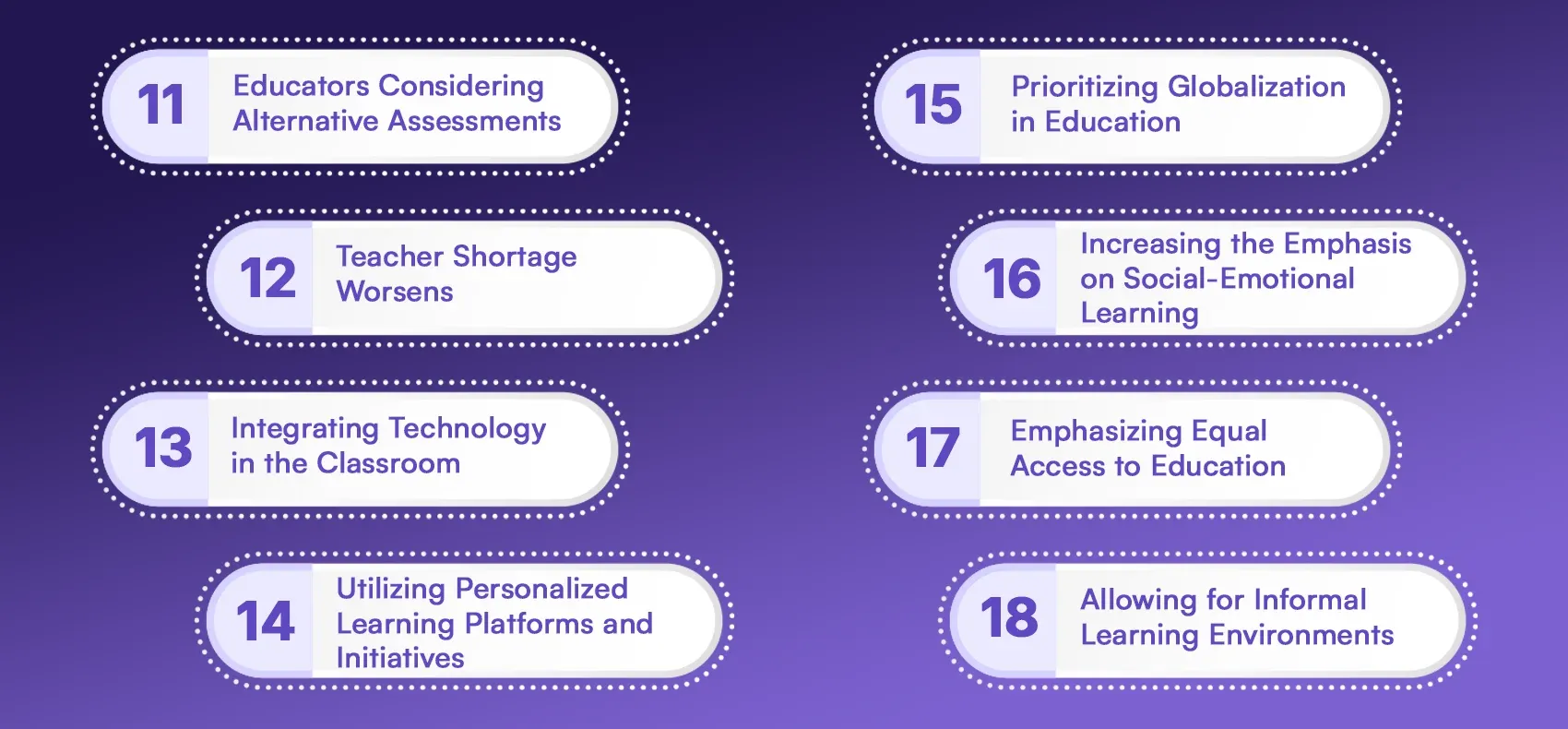
11. Educators Are Thinking About Alternative Assessments
Exams, as we know them, are becoming less relevant. Models of education today, do not test memory, but rather how you apply it, how you are creative, or how you use critical thinking.
For instance, AssignmentGPT AI allows students to work through case studies from the real world and then use AI to help them get actionable feedback before final submission.
This model of adaptive learning allows students the opportunity to learn from their mistakes and not be punished.
By 2026, portfolio-based assessments and feedback loops will be a replacement for outdated grading systems.
12. Teacher Shortage Worsens
Some trends, however, are less optimistic.
Teacher shortages are approaching crisis levels worldwide, especially in some low and middle-income countries.
Many teachers are experiencing burnout, increased administrative responsibilities, and low wages. One positive trend is the introduction of AI automation tools to alleviate some of those responsibilities like grading, lessons, and attendance.
Regardless, we need to start encouraging more people back into teaching, AI will never be able to replace the compassion and engagement of a teacher.
13. Integrating Technology in the Classroom
Smartboards, interactive apps, or AI tutors were low-budget sci-fi scenarios a few years back. In 2026, classrooms will exist in a digital ecosystem feeling like a school.
A few months ago I visited a tech-enabled school and watched students work collaboratively on real-time shared whiteboards while an AI was analyzing patterns of participation and suggesting improvements for grouping students.
Teachers are more effectively recognizing which students are at risk of falling behind before grades can show it, which gives them more opportunity for intervention.
14. Using Personalized Learning Systems and Initiatives
Every student learns differently - and finally technology is catching up with this fact.
Platforms such as AssignmentGPT AI, Coursera, and Edmodo now facilitate personalized learning paths, where students are given curated content based on their strengths and weaknesses.
As someone who has personally tested this type of tool, it is far easier and more enjoyable for students to access content once they manage their area of personal learning.
This trend guarantees that no learner feels left out, no matter their pace or background.
15. Emphasizing Globalization in Education
Education is not local, it is global. A student in Delhi can take a lecture online from Harvard, communicate with a classmate in Berlin on a project related to the lecture, and do an internship in Singapore - all from a laptop.
The increase in demand for international online educational programs, AI translators, and a greater awareness of global cultures is creating a more connected world in the academic community.
Globalization provides not just diverse knowledge, but also cultural awareness - a necessary skill in the 21st century.
16. Increased Focus on Social-Emotional Learning
Schools are beginning to understand that emotional intelligence (EQ) is as important as IQ.
Social-Emotional Learning (SEL) will help students regulate stress, communicate efficiently, and cultivate empathy toward others.
This began to gain traction after COVID-19, and has established itself as a critical growth area.
Many AI platforms are tracking student emotions with behavioral data, recognizing signs of burnout or disengagement early on.
By 2026, SEL will permeate almost every educational framework in the world.
17. A Focus on Equal Access to Education
Education must be a right, not a privilege.
In 2026, governments and private organizations are investing bucket loads of money into "Inclusive Education" for students from all backgrounds, ensuring students can get a quality education.
Whether it be a low-cost AI tool like AssignmentGPT AI or open source courses available to all for free, access is expanding.
Access is still an area of concern, especially in rural areas where WiFi access is poor or non-existent.
Closing the access gap will be one of the hallmark missions of educational reform in the next decade.
18. Supporting Informal Learning Environments
Not all learning occurs in a classroom, and that's okay.
Informal learning, via YouTube, podcasts, and social media, is becoming the norm.
When I began learning about AI tools, I did not take a course, I watched tutorials, I participated in communities, and I tried tools daily.
Watching videos and experimenting was hybrid learning, it was about following my curiosity in how these tools worked.
That is the glory of informal learning; it is flexible and exploration-based, and has impact that is frequently greater than structured lessons.
By 2026, schools will be giving its students credit for informal learning and valuing their world-of-work education.
Shaping the Future of Learning and Education at AssignmentGPT AI
As an expert in AI tools, I have experienced firsthand AI driven platforms like AssignmentGPT AI, that will be driving this education model.
There is so much more to it than just an academic support tool and study partner, it is an intelligent learning partner, supporting understanding, not just memorization.
From basedy habits, content suggestions, study partner, instant feedback, and next level personalization, AssignmentGPT AI supports learner's growth individually.
Classroom teachers will also be able to free up their time, plan instruction and provide quality feedback.
If the future of education were to be summed into a sentence, it would look like this:
AI and humans learning together, not competing, collaborating.
Conclusion
Education is changing quicker than any other sector, and 2026 is when we will fully embrace personalized, empathic, inclusive, and emotionally intelligent learning.
From AI tools like AssignmentGPT AI to emotionally aware learning programs, we are making our way toward a future where every learner matters, where education is fun, engaging and inherently flexible and accessible.
If we can be sure of anything in the future classroom, it is that we won't just teach kids facts and figures, we will teach them how to think, adjust, and thrive within an ever-changing world.
FAQs
1. What is the dominant trend in education for the year 2026?
2. In what ways is AI impacting education?
3. What is microlearning?
4. Why is neuroeducation significant?
5. Are online courses still relevant?
6. Can AI replace teachers?
7. What are soft skills within education?
8. What is Extended Reality in education?
9. In what ways and how might students leverage AssignmentGPT AI?
10. What is Social-Emotional Learning (SEL)?
11. What things can we do to assure equal access to education?
Content writer at @AssignmentGPT
Ashu Singh, content writer at AssignmentGPT, crafting clear, engaging content that simplifies complex tech topics, with a focus on AI tools and digital platforms for empowered user experiences.
Master AI with
AssignmentGPT!
Get exclusive access to insider AI stories, tips and tricks. Sign up to the newsletter and be in the know!

Transform Your Studies with the Power of AssignmentGPT
Empower your academic pursuits with tools to enhance your learning speed and optimize your productivity, enabling you to excel in your studies with greater ease.
Start Your Free Trial ➤Start your success story with Assignment GPT! 🌟 Let's soar! 🚀
Step into the future of writing with our AI-powered platform. Start your free trial today and revolutionize your productivity, saving over 20 hours weekly.
Try For FREE ➤